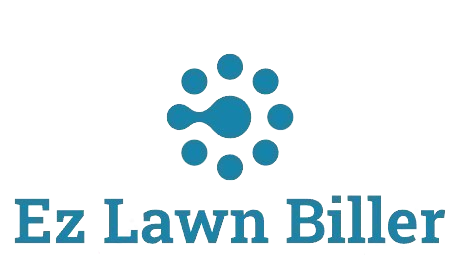With the rise of compliance regulations in the lawn care industry, understanding how to stay compliant is crucial for your business’s longevity and success. This guide will walk you through essential steps to maintain compliance.
Step-by-Step: How to Stay Compliant in Your Lawn Business
In today’s competitive lawn care market, staying compliant with both local and federal regulations is essential for success. From licensing and permits to environmental regulations, understanding the compliance landscape can be overwhelming. This blog post will provide you with a comprehensive step-by-step guide to help you navigate the complexities of compliance in your lawn care business.
It will cover critical areas such as obtaining necessary licenses, understanding pesticide regulations, and maintaining accurate records, while also offering tips for utilizing software solutions like Lawn Biller Software to streamline your process.
Understanding Licensing and Permits
Obtaining the necessary licenses and permits is the first step towards compliance in your lawn care business. Depending on your location, the requirements can vary significantly. Most states require lawn care businesses to be licensed, especially if you plan to apply pesticides or fertilizers.
Research local regulations to determine what specific licenses you need to operate legally. For instance, some states require a commercial pesticide applicator’s license. This typically involves passing an exam and demonstrating knowledge of safe application practices.
To ensure you’re compliant, check with your state’s Department of Agriculture or Environmental Protection Agency (EPA). Resources are often available on their websites to guide you through the application process. Additionally, consider using a service like Lawn Service Software to track your licenses and permits, ensuring you renew them on time.
Complying with Pesticide Regulations
Pesticide application is heavily regulated to protect public health and the environment. If your lawn care services involve pesticides, you must stay informed about federal and state regulations. The EPA regulates pesticide usage under the Federal Insecticide, Fungicide, and Rodenticide Act (FIFRA), and state agencies may have additional requirements.
Before applying pesticides, always read the label, which provides instructions on safe and legal use. Ensure that you are aware of restricted-use pesticides, which may require special licensing and training.
It’s also wise to maintain detailed records of pesticide applications, including the type of pesticide used, the date of application, and the areas treated. Not only does this help you stay compliant, but it can also protect you in case of disputes. Using service company software can simplify these record-keeping tasks, allowing you to easily log and access this critical information.
Employee Training and Safety Protocols
Another vital aspect of compliance is ensuring that your employees are adequately trained in safety protocols and regulatory requirements. Provide continuous training on the proper handling, application, and disposal of chemicals.
Establish a safety plan that outlines procedures for equipment use, injury reporting, and emergency response. Training not only keeps your employees safe but also demonstrates your commitment to compliance, enhancing your business’s reputation.
Consider creating a comprehensive employee handbook that includes all safety protocols and compliance requirements. Regularly review and update this handbook as regulations change. To support your compliance efforts, you might explore using a lawn service app for efficient communication and training management.
Maintaining Accurate Records
Maintaining accurate records is crucial for compliance in your lawn care business. Records should include client details, service history, pesticide applications, and employee training logs. Accurate documentation not only helps you stay compliant with regulations but also improves your business’s operational efficiency.
Implement a system to organize these records, whether digitally or on paper. For digital solutions, consider using a lawn company computer program that offers features like automated record-keeping and reminders for important tasks such as license renewals.
In addition to keeping records for compliance, having organized documentation can improve customer service. Clients will appreciate timely and accurate billing, which can be facilitated by software like Lawn Biller Software.
Staying Updated on Regulatory Changes
The compliance landscape can change rapidly, with new regulations or updates to existing ones. Make it a priority to stay informed about any changes that may affect your lawn care business.
Join industry associations or subscribe to newsletters that provide updates on regulatory changes. Networking with other lawn care professionals can also offer insights into compliance practices within your region.
Utilizing technology can streamline this process. A lawn service software can help you stay current with the latest regulations while allowing you to manage your services effectively.
Insurance and Liability Considerations
Insurance is a critical component of compliance in the lawn care industry. Ensure you have the necessary liability insurance to protect your business from potential lawsuits or claims. General liability insurance is typically required, but you may also want to consider additional coverage, such as professional liability insurance, which can provide extra protection if a client holds you responsible for damages resulting from your services.
Review your insurance policy regularly to ensure it meets the current needs of your business. Consulting with an insurance professional who understands the lawn care industry can help you determine the right coverage for your specific operations.
Additionally, documenting your insurance coverage can serve as proof of compliance and can be beneficial when working with clients who require certain liability protections.
Utilizing Technology for Compliance
In the modern business landscape, leveraging technology can significantly aid your compliance efforts. For instance, using a lawn service computer program can help streamline your billing, scheduling, and compliance record-keeping processes.
These technologies often come with built-in features that remind you of important compliance dates, such as license renewals or training refreshers for employees. Additionally, cloud-based systems allow you to access your records from anywhere, making it easier to stay compliant even when you’re on the go.
Consider investing in a solution like Lawn Service App that offers comprehensive management features tailored for lawn care businesses, enabling you to focus on your services while maintaining compliance effortlessly.
Best Practices for Compliance and Growth
To ensure your lawn care business thrives, combining compliance with best practices is essential. Regularly assess your business operations and identify areas for improvement. This proactive approach can help you stay ahead of compliance risks while fostering growth.
Consider developing a compliance checklist that outlines all necessary steps, from licensing and training to record-keeping and insurance. Regular audits of your practices can also help identify gaps in compliance.
Moreover, encourage an organizational culture that prioritizes compliance and safety. This commitment not only protects your business but also builds trust with your clients, ultimately leading to better customer retention and referrals.
Conclusion
Staying compliant in your lawn care business is not just about meeting legal requirements; it’s about ensuring the long-term success of your operations. By understanding licensing and permits, adhering to pesticide regulations, maintaining accurate records, and leveraging technology, you can navigate the complexities of compliance with confidence.
Investing time and resources into compliance not only protects your business but enhances your reputation among clients and peers. Now is the time to take action. Start reviewing your compliance practices and consider tools like Lawn Biller Software to simplify your processes and foster a compliant, thriving lawn care business.




